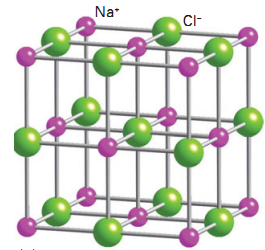Properties of unrefined, Himalayan and Celtic Sea Salts
- Contaminant-free
- Contains all of the 84 elements found in the body – the same elements originally found in the “primal sea”, all in colloidal form (small enough for your cells to readily absorb them).
Himalayn salt has a perfect crystalline structure (as seen under an electron microscope) – the interconnectedness of each molecule provides a harmonious vibrational energy component of the 84 elements present. The picture on the left (below) shows refined sea-salt. The natural Himalayan salt shown on the right clearly has a more structured crystalline form.
Health Benefits of Natural, Unrefined Salt
- Regulates water content throughout the body.
- Promotes healthy pH balance in body’s cells – particularly brain cells.
- Promotes blood sugar balance and help reduce the signs of aging.
- Assists in the generation of hydroelectric energy in body’s cells.
- Absorbs food particles through your intestinal tract.
- Supports respiratory health.
- Promotes sinus health.
- Prevents muscle cramps.
- Promotes bone strength.
- Regulates sleep – it naturally promotes sleep.
- Supports your libido.
- Promotes vascular health.
- Essential for the regulation of blood pressure – in conjunction with water.
Our Salt of Choice
Analysis of Himalayan Pink Salt
This list on the table alongside: Certificate of Analysis shows the amounts of all the trace minerals, electrolytes, and elements contained in Himalayan salt
Additional combined elements – the sodium chloride content is 97.41% and meets the worldwide necessry standards for table salt:
| Water H²O | 1.5 g/kg | DIN |
| Ammonium NH4+ | 0.010 ppm | Photometric |
| Nitrate NO3- | 0.09 ppm | Photometric |
| Phosphate PO4 3- | <0.10 ppm | ICG |
| Hydrogencarbonate HCO3- | <1.0 g/kg | Titration |
Legend: g/kg – Grams per kilogram ; DIN – German Standards Institute; ICG – Ionchromatography; AAS – Atom absorbtion spectrometry; TXRF – Total reflection – X-Ray – Floresence-Spectometry; ppm – Parts per million; FSM – Flamespectrometry; FSK – Frequency Spectroscope+











